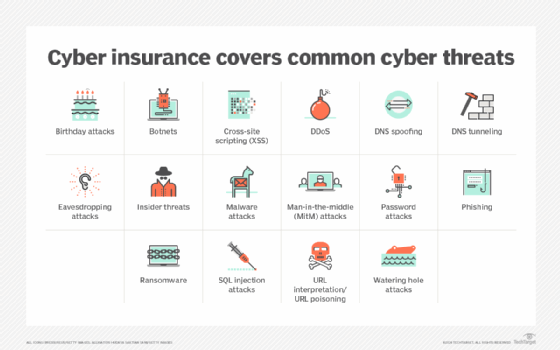Intro:

In an period where digitalization is the norm, the protection of precious digital means has come consummate. With the rise in cyber pitfalls and attacks, individualities and businesses likewise are turning to cyber insurance as a pivotal element of their threat operation strategy. This composition explores the significance of cyber insurance in securing your digital means, its crucial factors, benefits, and considerations.
Understanding Cyber Insurance
Cyber coverage, additionally called cyber danger insurance or cyber legal responsibility coverage, is designed to relieve the economic losses related to cyber incidents. These incidents may encompass information breaches, ransomware assaults, commercial enterprise interruption due to cyber sports, and other forms of cybercrime. Cyber insurance programs vary extensively, offering content acclimatized to the specific requirements and pitfalls of the ensured reality.
Key Components of Cyber Insurance Policies

1. First- party Coverage: This covers direct losses incurred by the insured party, similar as data breach response costs, forensic disquisition charges, business interruption losses, and highway robbery payments in the case of ransomware attacks.
2. Third- party Coverage: This protects against arrears arising from claims by third parties affected by a cyber incident. It may include legal defense costs, agreements, and nonsupervisory forfeitures performing from data breaches or other cyber events.
3. Risk Assessment and Management: Services Some cyber insurance programs offer visionary threat assessment and operation services to help associations identify vulnerabilities, apply security measures, and reduce the liability of cyber incidents.
Benefits of Cyber Insurance
1. Financial Protection: Cyber coverage presents fiscal safety against the potentially ruinous costs related to cyber incidents, such as data healing, legal charges, and nonsupervisory forfeitures.
2. Reputation Management: By helping associations respond effectively to cyber incidents and minimize their impact, cyber insurance plays a pivotal part in conserving character and maintaining client trust.
3. Peace of Mind: Knowing that they’ve a fiscal safety net in place in the event of a cyber attack or data breach gives businesses peace of mind and allows them to concentrate on their core operations without constant solicitude about cyber pitfalls.
Considerations Before Purchasing Cyber Insurance

1. Assessing threat Exposure: Before copping cyber insurance, associations should conduct a thorough assessment of their threat exposure, including relating implicit vulnerabilities, assessing the liability and implicit impact of cyber incidents, and assessing being cybersecurity measures.
2. Policy Coverage and Limitations: It’s essential to precisely review the content and limitations of cyber insurance programs to insure they align with the association’s specific requirements and threat profile. Pay attention to content limits, deductibles, rejections, and policy conditions.
3. Compliance Conditions: Organizations operating in regulated diligence may have specific compliance conditions regarding cybersecurity and data protection. insure that the chosen cyber insurance policy meets these conditions and provides content for nonsupervisory forfeitures and penalties.
Conclusion
In an decreasingly digitized world, the significance of guarding digital means against cyber pitfalls can not be exaggerated. Cyber insurance offers a precious safety net for businesses and individualities, furnishing fiscal protection, character operation, and peace of mind in the face of evolving cyber pitfalls. By understanding the crucial factors, benefits, and considerations of cyber insurance, associations can make informed opinions to guard their digital means effectively.